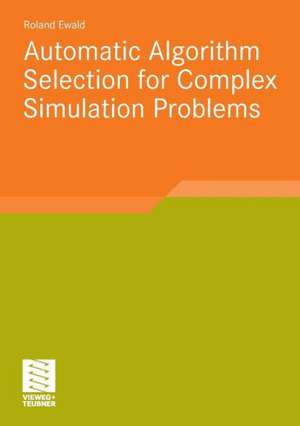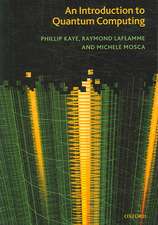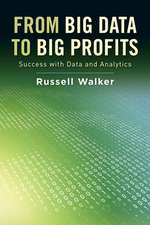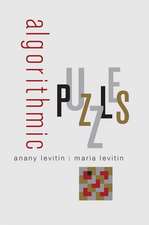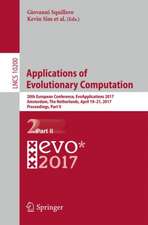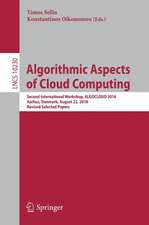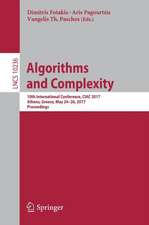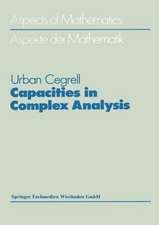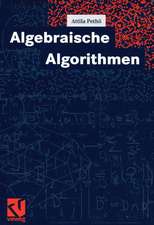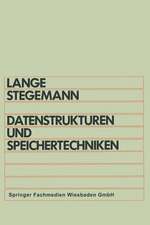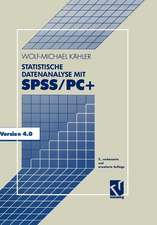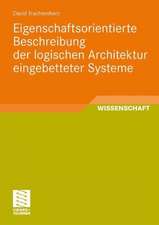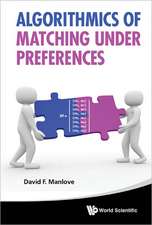Automatic Algorithm Selection for Complex Simulation Problems
Autor Roland Ewalden Limba Engleză Paperback – 14 noi 2011
Roland Ewald analyzes and discusses existing approaches to solve the algorithm selection problem in the context of simulation. He introduces a framework for automatic simulation algorithm selection and describes its integration into the open-source modelling and simulation framework James II. Its selection mechanisms are able to cope with three situations: no prior knowledge is available, the impact of problem features on simulator performance is unknown, and a relationship between problem features and algorithm performance can be established empirically. The author concludes with an experimental evaluation of the developed methods.
Preț: 648.44 lei
Preț vechi: 810.55 lei
-20% Nou
Puncte Express: 973
Preț estimativ în valută:
124.08€ • 129.90$ • 102.67£
124.08€ • 129.90$ • 102.67£
Carte tipărită la comandă
Livrare economică 05-19 aprilie
Preluare comenzi: 021 569.72.76
Specificații
ISBN-13: 9783834815422
ISBN-10: 383481542X
Pagini: 420
Ilustrații: XXI, 382 p. 101 illus., 20 illus. in color.
Dimensiuni: 148 x 210 x 25 mm
Greutate: 0.5 kg
Ediția:2012
Editura: Vieweg+Teubner Verlag
Colecția Vieweg+Teubner Verlag
Locul publicării:Wiesbaden, Germany
ISBN-10: 383481542X
Pagini: 420
Ilustrații: XXI, 382 p. 101 illus., 20 illus. in color.
Dimensiuni: 148 x 210 x 25 mm
Greutate: 0.5 kg
Ediția:2012
Editura: Vieweg+Teubner Verlag
Colecția Vieweg+Teubner Verlag
Locul publicării:Wiesbaden, Germany
Public țintă
ResearchTextul de pe ultima copertă
To select the most suitable simulation algorithm for a given task is often difficult. This is due to intricate interactions between model features, implementation details, and runtime environment, which may strongly affect the overall performance. An automated selection of simulation algorithms supports users in setting up simulation experiments without demanding expert knowledge on simulation.
Roland Ewald analyzes and discusses existing approaches to solve the algorithm selection problem in the context of simulation. He introduces a framework for automatic simulation algorithm selection and describes its integration into the open-source modelling and simulation framework James II. Its selection mechanisms are able to cope with three situations: no prior knowledge is available, the impact of problem features on simulator performance is unknown, and a relationship between problem features and algorithm performance can be established empirically. The author concludes with an experimental evaluation of the developed methods.
Roland Ewald analyzes and discusses existing approaches to solve the algorithm selection problem in the context of simulation. He introduces a framework for automatic simulation algorithm selection and describes its integration into the open-source modelling and simulation framework James II. Its selection mechanisms are able to cope with three situations: no prior knowledge is available, the impact of problem features on simulator performance is unknown, and a relationship between problem features and algorithm performance can be established empirically. The author concludes with an experimental evaluation of the developed methods.
